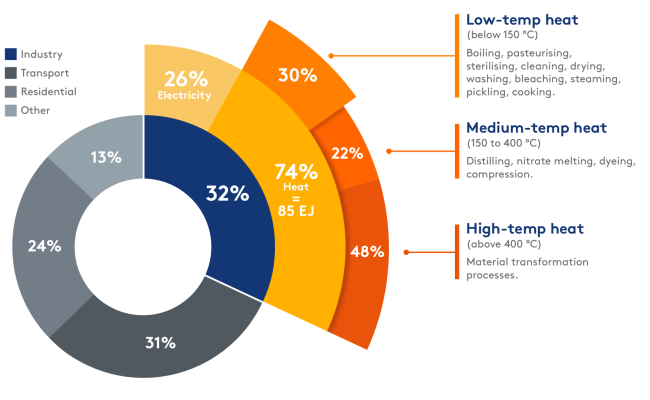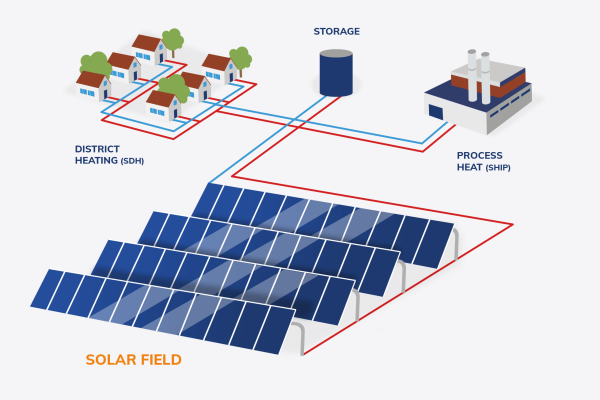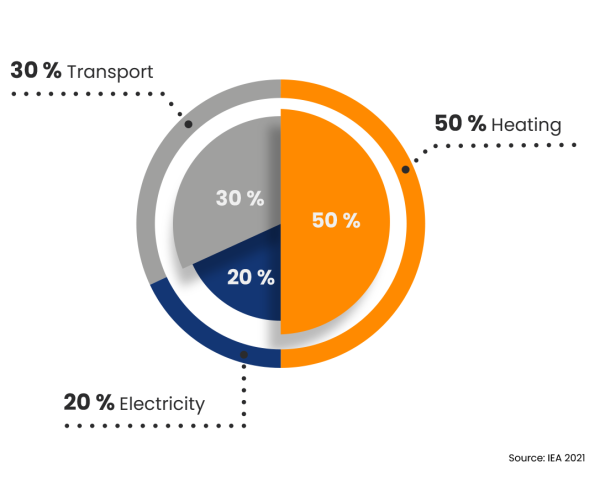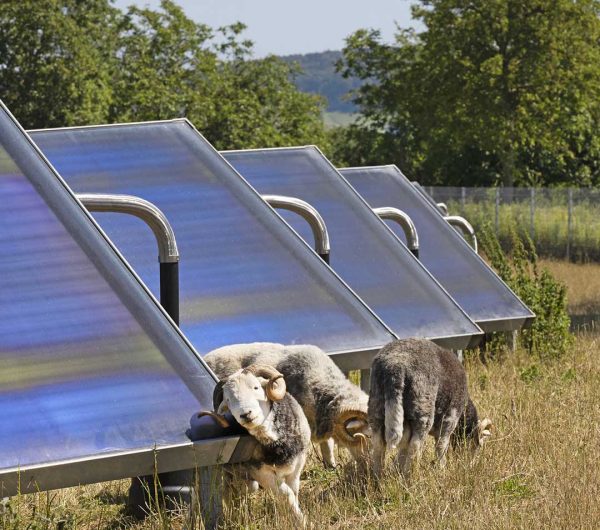Solar heat for industrial processes (SHIP) continues its steady growth. Thirty-two per cent of the world’s energy demand is used by industry, and around 75% of this is for heat. Of industrial heat use, some 30% is low temperature heat (<150 °C), which is particularly suitable to be produced by solar heat. There are several industries that benefit from different applications of solar thermal process heating. Among them are greenhouses, mining companies, dairies, brewing companies and other food industries – to name just a few.


The role of solar district heating plants in decarbonising the heating sector is particularly important. This cost-effective way of greening the heat supply of towns and cities is attracting new interest in markets around the world.
In most cases, solar energy contributes up to 20% of annual heat demand. Using seasonal storage can increase this fraction to 60% or more.
The number of solar district heating systems continues to grow, as they prove one after the other to be worth the investment, not only ecologically but also economically.
Large Heat Pumps are a key component in our mission to provide clean, efficient, and sustainable energy solutions. These systems harness the power of waste or ambient heat, transferring it from one place to another to provide heating or cooling as needed. Our large-scale heat pumps are designed for industrial applications, offering a high coefficient of performance (COP) and significant energy savings. By integrating these systems into your operations, you can reduce your carbon footprint, lower energy costs, and contribute to a more sustainable future.
On top of that, combination with solar thermal plant offer very wide possibility of decarbonization.
We provide well designed and efficient solar thermal systems for the heating of towns and communities, as well as industrial processes. Meriaura Energy’s energy solutions are focused towards large-scale applications. We deliver complete systems from design to installation, using the best local partners to help our customers produce competitive clean energy.
The introduction of solar heat will bring cost savings in the form of low and stable energy costs, with the ability to forecast future energy costs for years in advance.
Climate change is the greatest challenge of our time, and we have to do everything to slow down global warming. The ever-increasing need for sustainability in global energy production is taking us towards a greater transformation than ever. To limit climate change, we need a transition of the global energy sector from fossil-based to zero-carbon by the second half of our century.
Heating, in general, is the largest energy use worldwide. Providing heating for homes, industry and other purposes accounts for around 50 % of total energy consumption globally, which is significantly more than e.g. electricity (20%) and transport (30%).
The Net Zero Emissions by 2050 scenario means, among other things, that there is a need for a shift from fossil fuels to clean, renewable heat. Meriaura Energy is at the heart of this great change, providing an endless clean heat source, solar heat, at a competitive price and taking us towards a greener future.

According to IEA, the International Energy Agency, the market for solar thermal technology is in steady growth. The world is facing an energy crisis which further emphasizes the importance of solar thermal as the source of reliable, competitive clean heat.

Heating, in general, constitutes the largest use of energy worldwide. Providing heating for homes, industry and other purposes accounts for around 50% of total energy consumption globally, which is significantly more than electricity (20%) and transport (30%), for example.
Solar thermal heating and cooling systems already serve millions of residential, commercial and industrial clients worldwide. The acute need to increase this amount rapidly has been identified, and a wide range of subsidy programmes have been put in place by governments around the world. With the high cost of fossil fuels, solar heat is in many cases economical without any subsidies.